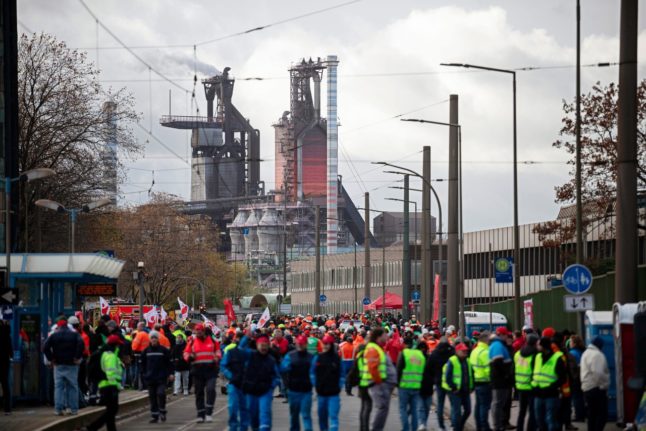Germany is suffering from a shortage of labour – with skilled workers by far the most sought-after group in Europe’s largest economy.
But a new study suggests that thousands of apprenticeships are going unfilled each year as companies struggle to find young people to train up for the future.
According to researchers at the Institute for German Economy (IW), around 63,000 traineeship spots remained empty in 2021, accounting for around 12 percent of available positions.
However, this figure only accounts for those traineeships that are registered with the employment agencies in Germany.
“If those vacancies that are not reported to the employment agencies for a variety of reasons are also taken into account, this proportion is significantly higher at just under 40 per cent,” the IW explains.
For this reason, the institute believes that the issue is partly of the companies’ own making.
READ ALSO: Germany must remove hurdles for foreign skilled workers, says minister
It recommends that companies focus on offering more support for apprentices in their free time, support with mobility and transport and offers of housing for trainees to help make the positions more tenable for applicants.
“In future, it will be important to tap the remaining potential of young people in order to combat the shortage of skilled workers,” the IW says, adding that the issue is particularly urgent in sectors with the highest shortage of skilled labour.
At present, companies are desperately looking for candidates before the start of the new training period.
The highest proportion of unfilled training places was in the sale of meat products, with 60.4 percent of positions currently going unfilled.
The plumbing trade (38.9 percent), catering (37.5 percent) and concrete and reinforced concrete builders (33.8 percent) also suffer from a lack of interest.
‘Republic of further education’
For Labour Minister Hubertus Heil (SPD), this issue of skilled labour shortages is set to be a major challenge over the next four years.
“The lack of skilled workers must not become a permanent brake on growth in Germany,” he told DPA in January.
Training and further education will be a “central focus” of his time in the ministry, he said.
“We are already seeing in individual regions and sectors that there is a shortage of workers and often of skilled workers,” the SPD politician said.
He said there was a particular shortage of truck drivers and of employees in the care sector.
In order to remedy this problem, Heil wants to significantly improve opportunities for further education in Germany.
“My goal is for Germany to become a republic of further education,” he said.
READ ALSO: EXPLAINED: Can foreigners apply for student finance in Germany?



 Please whitelist us to continue reading.
Please whitelist us to continue reading.
Member comments